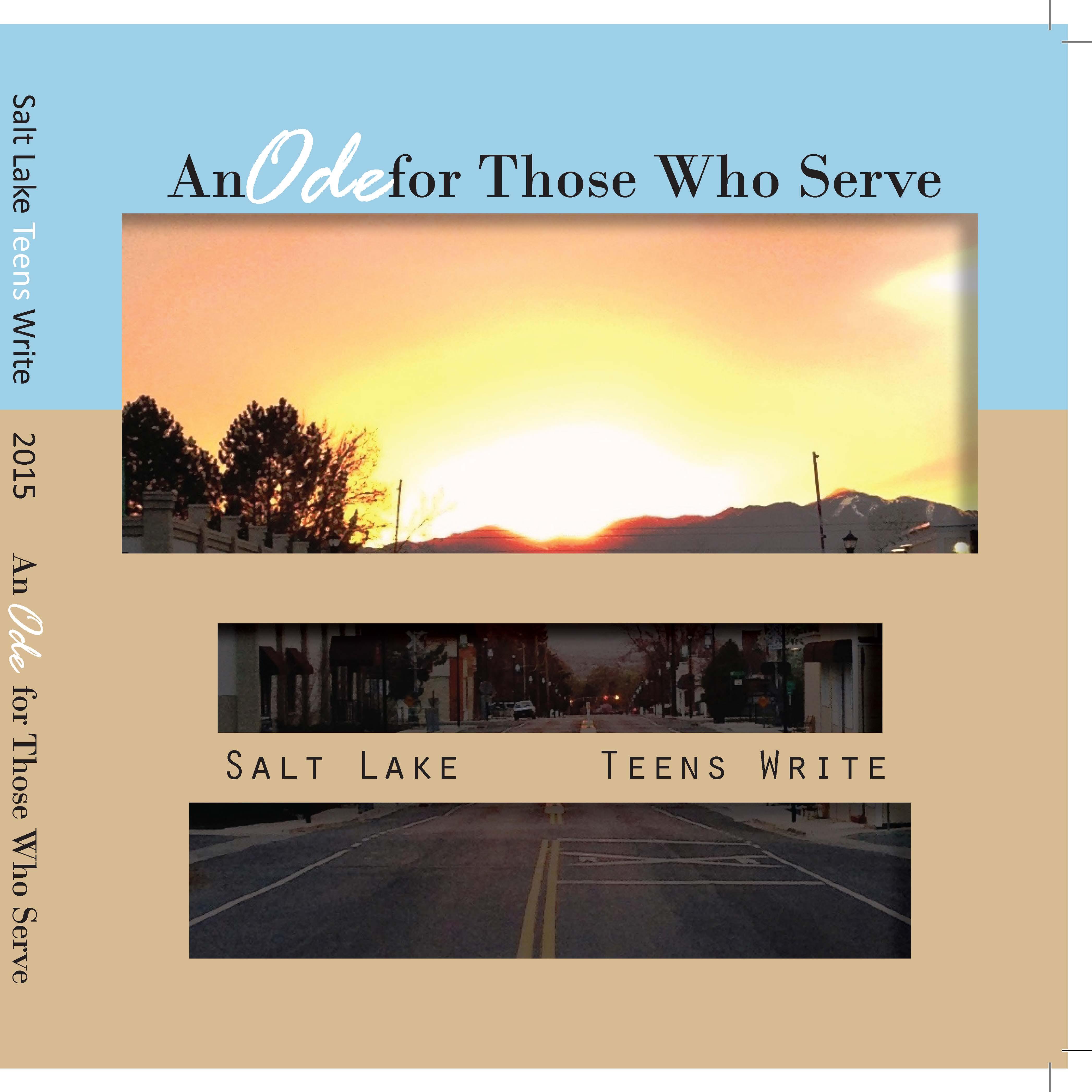
Salt Lake Teens Write


Salt Lake Teens Write
Salt Lake Teens Write is published by the SLCC Community Writing Center All inquiries should be directed to: SLCC Community Writing Center
210 East 400 South, Suite 8, Salt Lake City, UT 84111
Salt Lake Community College (SLCC), The Salt Lake City Public Library, the Salt Lake City Arts Council, and the SLCC Community Writing Center (CWC) are not responsible for the opinions expressed in Salt Lake Teens Write, nor does the writing represent any official position at SLCC or the CWC. Individual authors are solely responsible for the opinions expressed herein.
Each author retains copyright individually. Reprinting of this publication is permitted only with prior consultation and approval from the SLCC Community Writing Center.
This edition of Salt Lake Teens Write was compiled by Keaton Charles Butler and edited by CWC Staff Members and Associate Director Elisa Stone. Cover photo by Theodore Lazenby.
Salt Lake Teens Write: An Ode for Those Who Serve ©2012, 2013, 2014, 2015


Salt Lake Teens Write Teens and Mentors are paired up at the 2014 Fall Kick-Off.
Teen Writers
Mohammed Abdi
Domeniko Ardadi
Kadelyn Egan
Mulaw Eh
Huy Huynh
Jordan Mills
Qwinton Moore
Mariah Norton
November Htoo
Helen Gwen
Samantha Motta
Nay Say Paw
Takara Truong
Tiffany Walther
Yahya Yusuf
Mentors
Candace Aguilar
Adrienne Bossi
Amy Childress
Scott Claffey
Brooke Cramblitt
MaryBeth Jarvis Clark
Melissa Hart
Alexis Isle
Theodore Lazenby
Sumiko Martinez
Brandon Miller
Natalie Moldover
Margaret Osgood Opatz
Sarah Rose
Daniel Yocom
Mentoring Teams
Candace Aguilar and Domeniko Ardadi
Adrienne Bossi and Mulaw Eh
Amy Childress and Kadelyn Egan
Scott Claffey and Huy Huynh
Brooke Cramblitt and November Htoo
MaryBeth Jarvis Clark and Samantha
Motta
Melissa Hart and November Htoo
Alexis Isle and Mariah Norton
Theodore Lazenby and Takara Truong
Sumiko Martinez and Helen Gwen
Brandon Miller and Qwinton Moore
Natalie Moldover and Yahya Yusuf
Margaret Osgood Opatz and Tiffany Walther
Sarah Rose and Jordan Mills
Daniel Yocom and Mohammed Abdi
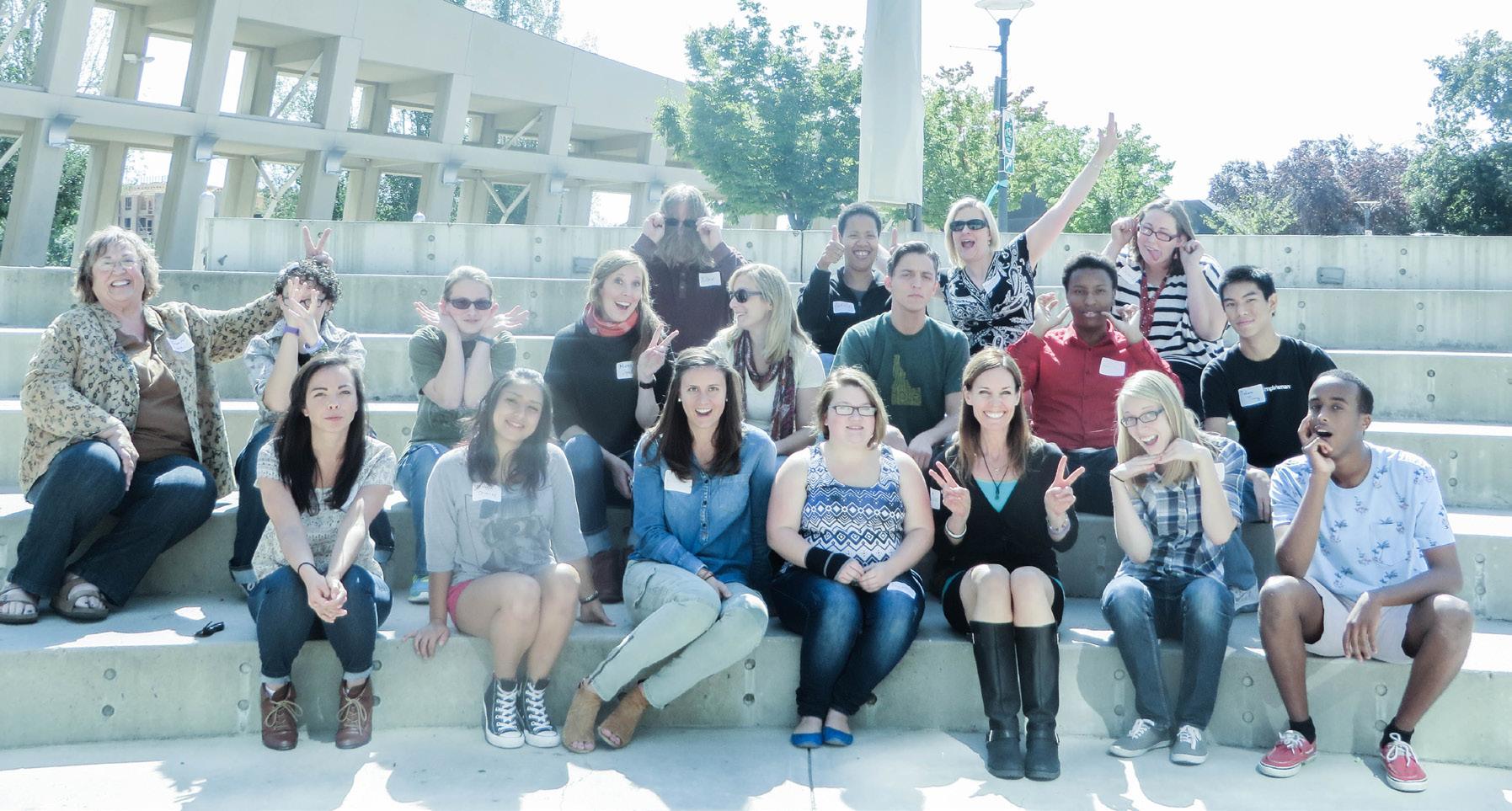
The 2014 Salt Lake Teens Write Kickoff Celebration paired 15 teens with 15 mentors.
The SLCC Community Writing Center is pleased to share this publication as a culmination and celebration, in partnership with the Salt Lake City Public Library, of the 2014-2015 Salt Lake Teens Write Program. What started five years ago as Salt Lake Girls Write has now expanded into an inclusive program that pairs underrepresented 11th grade teenage girls and boys with community mentors who use writing in their daily lives and professions. Together our mentoring teams work on writing throughout the year, exploring a variety of genres such as applications, essays, poetry, fiction, articles, letters, and more. Their individual endeavors are supported by group workshops where teens and mentors gather to collaborate on writing skills they wish to explore. This year’s workshops covered college scholarships and essays, web writing, and self-publishing/poetry. Each writer’s work is featured in their individual portfolios.
We are honored to note this program was competitively selected as one of the 10 Finalist Winners in the Instructional Programs and Services Category for the prestigious Bellwether Award from the Community College Futures Assembly in 2014. This was thanks, in part, to winning Salt Lake Community College’s Innovation of the Year in 2011-2012.
This year’s publication is titled after one of our teen’s poems: Tiffany Walther’s “An Ode for Those Who Serve.” We recognize service can have many different meanings, and acknowledge the impact each mentor has had on the teens they have mentored, week in and week out, to explore writing this year. We also affirm that mentors can benefit equally from the experiences, struggles, strength, hope, and wisdom of their mentees. Reciprocity is at the heart of all we do.
We appreciate our partnership with the Salt Lake City Public Library and their many contributions that make this program possible. Thanks to Salt Lake Community College for funding and supporting this publication. And, of course, thank you to all of our mentors and teens! This program perseveres because of you.
by Tiffany Walther
To those of you who serve your friends, your family, and nation, Those of you, who take a stand and step into action. Who are unafraid to risk your life to save those you love, With the strength of an army but the sympathy of a dove. You walk into battle with those around you Unafraid, you stand tall, knowing just what to do. The community you have, is overwhelmed with friends The powerful effect of understanding never ends. Whether military or not, you know just what to do When those around you suffer, jumping into action, right on cue.
by Alexis Isle
Give them a voice
Give them the power
Give them the strength to climb that tower
The one that they know that they are not like you and me
The one that we know is difficult for them to see
Got this job to change their life
To help them see that even though they are different
They are still a part of you and me
Got this job to show them they are loved
That someone can care and that no matter what we will always be there
Stayed at this job for how they changed me
They changed my life
They changed my world
They changed the way I see
Looked past everything that I thought the world was
Showed me there are different ways different things to see
Without saying a word they taught these things to me
If it was up to me they would see no more pain, they have no more sorrow or fear and know only gain
If it were up to me
These beautiful people
The ones I hold in such high regard
Would never be told that they were Wrong or ugly and be discarded
These beautiful people
The ones who make a difference to me Are the ones that changed the way I see the world And the reason I keep holding on to me.
by Alexis Isle
Something we are given from the time we are born
We lift our heads to this name
We hear this name
We know it
Our names are given to us by people who hardly know us. That hold us in their arms looking down and from just looking at us they say a name
A name that will carry on from the moment we take our first breath until we take our last.
Some people share this name
So we aren’t as unique as we think But our name they say makes us how we are They are wrong
Our name is just that a name We make ourselves who we are We decide if we want to smile or frown, laugh or cry Our name is decided by someone else But who we are we get to decide that So who will you be?


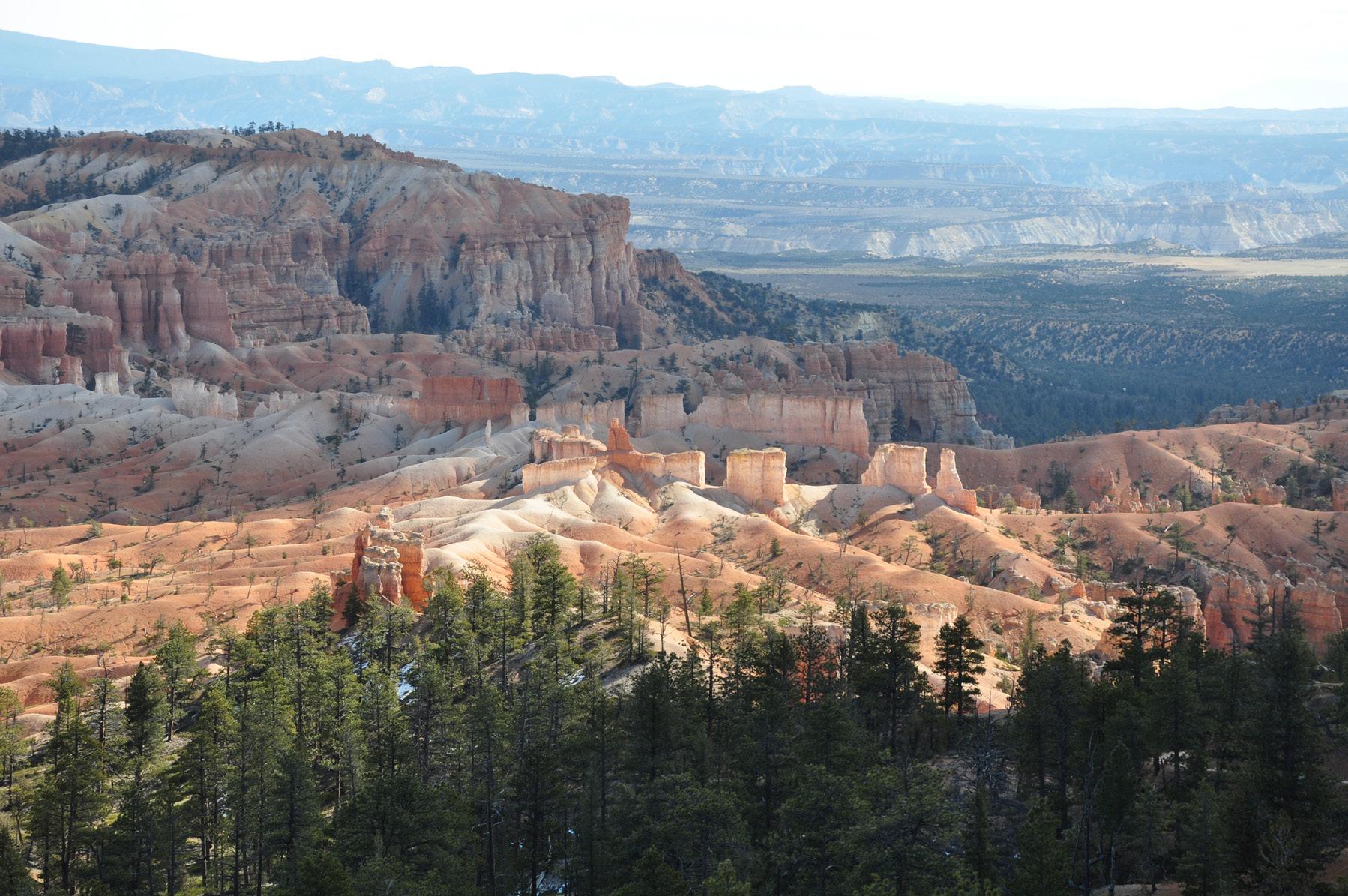
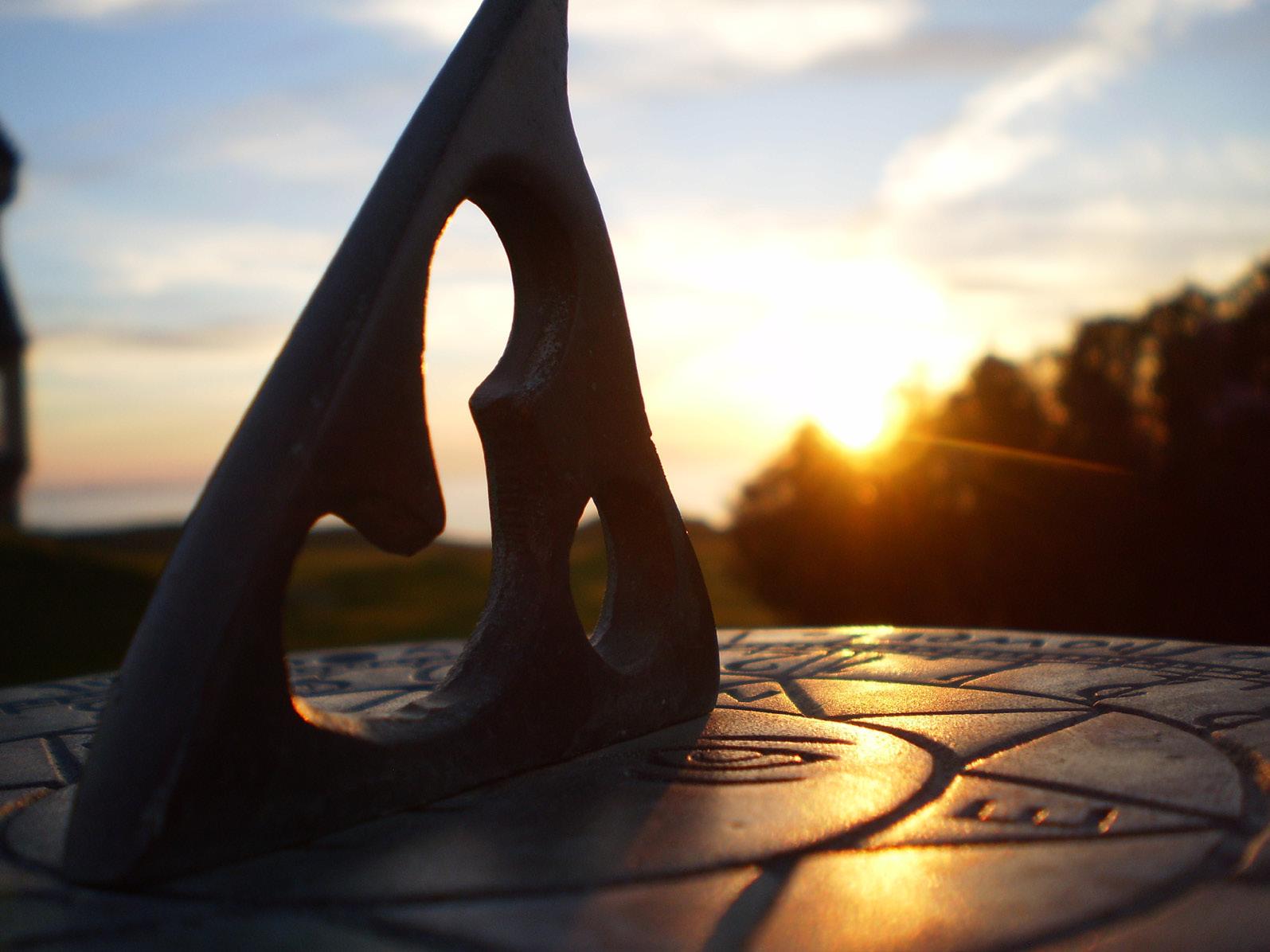
by Sumiko Martinez
In the middle of a month when four babies arrived in her family, Sophie went to a funeral with her husband. Springtime funerals are especially cruel. Daffodils poked up beside the paved pathway, marking the way for a cadre of uniformed pallbearers. This was a funeral to observe a sudden, unexpected death that abruptly ended the life of, by all accounts, a wonderful man. The grass hadn’t turned summery green yet, still a dull, winter-tinged hue scattered through with beige strands of dead grass from last year. Their feet trampled it on the way to the grave.
I hate funerals, Sophie thought silently.
Children wearing too-stiff suits and dresses rolled around in the not yet alive grass, teasing the edge of the AstroTurf that covered the hole in the ground. Their unaware laughter contrasted with the shaken, ashen faces of the grown children whose father was suddenly absent. The casket’s polished wood gleamed in the weak sunlight. Sophie was ashamed of her gratitude for the sun. It gave her an excuse to hide her tears behind oversized sunglasses. I look like hell when I cry. Not that it mattered. But she’d been steadily crying for two hours, and she could feel her swollen eyelids every time she blinked.
This funeral director’s doing a terrible job, she thought. No graveside program? He could at least announce what is supposed to happen. Somehow the lack of authoritative direction made the murmuring more awkward as everyone clustered for the second service.
The sharp prickling of tears stung Sophie’s eyes and suddenly she couldn’t breathe. The widow, a woman who had helped to raise her husband, was straight across from her. Across the grave. Across her husband’s body. She wanted to look away.
She was beautiful in the fragile way that grief makes women beautiful. Clad in a stylish black dress and low heels, her silver-blond hair swinging short and
blunt across her shoulders, she was supported by one of her daughters and one of her sons. The loud report of a three-volley salute split the quiet afternoon and stilled the hushed whispers rustling through the crowd of mourners. One of the children began to cry, standing confused in her grass-stained dress by the casket.
I hate funerals, Sophie whispered to herself.
Her husband had disappeared somewhere, maybe to stand beside his friend. The widow’s head bowed under the weight of her sorrow, not forward to hide her tears, but backwards. Backwards, as if screaming silently at the sky above the green fabric canopy that covered the family’s chairs.
Her face was glazed with tears. Sophie thought, Thank goodness my husband is still alive. Her left hand, bearing a wedding ring and the beginnings of the knotty veins that mark late middle age, convulsively gripped her youngest daughter’s well-manicured hand. The widow’s shoulders trembled. A sob shook her slender frame, and one of her sons, standing behind her, gripped her shoulder reassuringly. Sophie hated seeing this. She couldn’t tear her gaze away from the widow. The same sunshine that blazed on the casket warmed her shoulders beneath a woven wool scarf. The widow was in the shade. So many years of love and camaraderie and she gets a folding chair in the shade of a collapsible marquee.
Mourning rituals are so human, Sophie thought. I can distance myself from the pain if I analyze human mourning rituals. Coward. She was still staring at the widow, her heart compressing painfully with each beat, each breath drawn in, as another tear welled from her eye. Thank god for sunglasses.
The widow looked hollow, as though all of her memories and passions and loves had been emptied out and all that was left was an overwhelming grief. Sophie thought about a poem from The Prophet, her go-to literature for rationalizing death: “For what is it to die but to stand naked in the wind and to melt into the sun?” It was back on the bookcase, beside Sophie’s desk, underlined from the first truly heartbreaking death she had tried to cope with with as a young woman. Should I send her a copy? No, that might come across as insen-
sitive. She hated looking at the widow. Thank god I’m not a widow yet. She hated herself for thinking it. She felt guilty. Funerals are the worst. The widow’s face, devoid of even the slightest flush of color, was terrible to see. Her skin was in between the tautness of youth and the paperiness of old age. She was no longer crying, but was staring wide-eyed at the casket, trying desperately to see beyond it, the salt tracks of tears momentarily etching her grief into the physical world. Sophie glanced away, then right back again.
Someone was speaking. A prayer. A call for children to lay roses on the coffin. The end. The crowd started to disperse slowly. Sophie finally turned away from the widow, exhausted. She walked away, hiding behind her sunglasses. When she started her truck, the fan belt squealed, witness to the everyday life that goes on underneath the landmark moments of births and funerals, celebrations and rituals of mourning. Sophie drove away.
by Helen Gwen
We dress up and make-up to impress on a daily basis
With mascara and tear stains on our faces we still smile
Because we know we are the strength that keeps you warm
We’ve been through it all, the rise and the falls...
The brownness of our skin and the thickness in our hips
You can’t resist, to the point where we are brutalized, used and abused
Our fight in this world is the development of our history
And the fact that we still stand strong is a sign of our victory
We will not be reduced to nothingness because without us, you wouldn’t be something
To my Beautiful Black Women, you’re more than that man standing or sitting next to you
You’re better than that man
That constantly brings you down to the dirt
And he doesn’t understand the hurt that you feel
But you’ve got to get on your feet because that’s the only way to heal
To my Beautiful Black Women
You’re better than that man that Treats you like some old pair of shoes
Labeling you his “side-chick” and disregarding you like old news
Pick up your pride and realize, you deserve so much better than him
To my Beautiful Black Women, My Sisters from another mother
Stop dragging each other’s name in the dirt
Stop lifting your skirts for money because you’re ignorant of your worth
Stop taking anything less than what you deserve
Because if you haven’t heard this from Maya Angelou or anybody else
You are a PHENOMENAL woman, Desirable in every way
Capable of great things
Don’t let nobody step on you like a door-mat
Your body is a temple and you should adore that
You’re gifted with a brain, so use it to sustain the glory bestowed upon you
And to the naive men in this world
Remember when you used to suck on our flesh to obtain nourishment
Remember when we used to starve so that you could be fed
And remember when we laid our lives down so that you would survive
Stop placing us in categories we don’t belong
We always want the best for you so STOP wishing the worst for us
We’re all brothers and sisters
In a disastrous world like this, we must stick together
If we’re constantly bringing each other down, no one’s gonna rise up
So wise up and listen, I noticed something missing
Whether it be LOVE, TRUST, or LOYALTY
We all gotta STEP-UP and fix it
I take pride in my woman-hood
I love the curves in my hips
The fullness of my lips
The stars in my eyes
And the curls in my hair
I will NOT be walked on like a door-mat
I will NOT be treated second-handedly
I deserve better than that
I will NOT be taken for granted
I’ve given too much to accept that
And I will accept NOTHING LESS than what I deserve
To my Beautiful Black sisters
Let this be your new anthem
Forgive the mistakes in the past but don’t forget them
Learn from them
Regardless of the bruises in your mind, body, and heart Hold your head to the sky
And if anybody asks you ‘why?’ You tell them, I’m a PHENOMENAL WOMAN!
by Yahya Yusef
Throughout the nation, Utah is known to have the best snow to ski and snowboard on. Many people don’t just think that Utah is a great place to ski solely because of the snow, which no doubt is a large part of it, but because they think the ski resorts are great. These resorts provide their own culture and traditions for the skiers and snowboarders. The resorts have a profound effect on the skiers themselves. When asked about how she felt about the ski resorts in Utah junior Sarah Beth Anderson said, “Skiing in Utah is the best because it shows the beauty of the wilderness, the community, and the traditions. The ski resorts in Utah famously bring what few ski resorts ever bring: history, tradition, and locality.”
The only way that ski resorts can have a unique and specialized way of doing things is by being completely separate from other resorts. This separation of resorts would be very hard to accomplish with big companies involved, one in particular being Vail Resorts. Vail owns multiple resorts throughout the country. It was the first ski resort company to be publically traded, and it owns three out of the four top ranked ski resorts in America. In May 29, 2013 it was announced that Vail Resorts bought the lease to control Canyons Resort for the next fifty years. After many years of pushing to buy Canyons, Vail Resorts successfully completed the purchase.
People at first were accepting of Vail Resorts buying out Canyons and wanted nothing but to continue skiing. But then there were rumors that Park City wouldn’t open and it might actually go bankrupt. There had been a clerical error in licensing between Park City and Talisker, the company that owned the mountain. Talisker refused to budge and it looked like Park City Ski Resort was going to close. Then along came Vail Resorts who purchased Park City and dealt with the licensing issue with Talisker. This will be the first year that Park City will open its season with Vail being the owner.
Vail now owns two resorts in Utah and has decided that it will start construction on combining Canyons and Park City into one large resort. Though in the end, it is cheaper to ski with the consolidation, there are a lot of people who believe that both Canyons and Park City have lost their uniqueness and have entered the “industry” by losing their individualism. When asked about the changes at Park City senior Anthony Palmer, who is an avid skier, said, “I didn’t think that Park City would be open (due to the closing scare) so I bought a Brighton pass this year, which ended up being great because they’re a lot more relaxed there. Park City has become everything Vail is: huge and touristy. Park City has lost its culture and roots and because of that I choose not to ski there anymore.”
Vail Resorts has transformed Park City Ski Resort into something it has never been before--a ski resort that is trying to attract a richer, more touristy crowd. Utah skiers are angry with this decision and how large companies are beginning to dominate smaller, more local ski resorts located in Utah’s famous mountains.
by Mulaw Eh


By:

Good because chocolate contains:
Flavanols: which may lower your blood pressure and improve blood flow to the brain to the heart.
Caffeine: It can give you energy.
Antioxidants : which help the body’s cells resist damage.

Bad because chocolate contains:
Sugar, other fats, and milk, which are added for taste.
• This may increase the risk of obesity and elevate blood cholesterol, which puts you at risk for heart diseases and stroke.


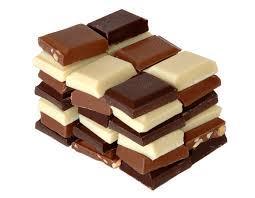



Chocolate comes from cocoa beans and cocoa beans contain a significant amount of flavonols



Cocoa beans also contain caffeine.

Cocoa beans contain many antioxidants.
One type of antioxidant present in cocoa is anthocyanidin.



The End.

http://www.naturalnews.com/ 042036_cacao_superfood_anti oxidants.html http://www.wisegeek.org/wh at-is-flavanol.htm
http://en.wikipedia.org/wiki/ Flavonols
http://en.wikipedia.org/wiki/ Chocolate#Health_effects http://www.livestrong.com/art icle/392195-chocolatenegative-side-effects/ http://my.clevelandclinic.org/ services/heart/prevention/nut rition/food-choices/benefitsof-chocolate
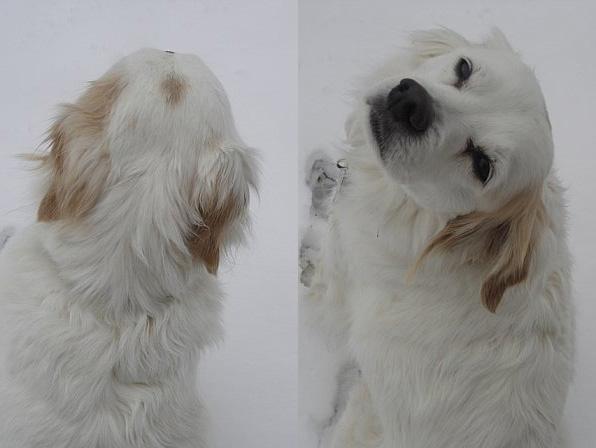
by Torin Stone
The pressure applied to my hand easily forces the rocky ensemble, consisting of innumerable forms and coating everything, to crumble. I feel the sand beneath the surface conform to the contours of my fingers. My head raises and the sunglasses slip slightly closer to my brow as I gaze upward at the remarkable structures that earned the area its name, Goblin Valley. My feet inevitably slip through the sand in my efforts to ascend towards the unparalleled tranquility that exists atop the highest plateaus. Once reached I am free to make an attempt at absorbing the impossibly grand scene, filled with natural trenches, tumble weeds and weather worn sediment fortresses. Accompanied only by the mesmerizing fluctuations of the wind, I reflect upon this place, and the others that have savored it in my past, and the superb combination of joy and wonder and serenity that I am experiencing.
I greatly enjoy climbing those pseudo sand dune mountains, but the aptitude of my dog to do so much more never failed to astound me. She darted up almost completely vertical structures as though gravity was simply non-existent. She constantly sped in all directions, while being certain to always keep me in her sight. More than once she was presumed to be irreversibly trapped in a pit, or down a cliff. More than once she sustained my disbelief as she would scale the obstacle as easily as jumping on the couch. Hannah is what makes the plateaus so incredibly cathartic; incredibly beautiful.
by Daniel Yocom
Java, the cat, is a tabby With fur that never looks shabby. Though long in the fluff She grooms the long stuff, Making the sneezers quite crabby.
There is a red cat named Adiam. Who cries and meows, “How sad I am. Just give me some food, I’ll adjust my bad mood, And then you will see how glad I am.”
Gingenar, a red tabby cat, Though large he’s sporting no fat. With a claw and a call He rules over all And reclines in the sun on a mat.
A tuxedo that we then called Spook Would call for my lap with a look. Some considered him feral, For me he would carol. My soul and my spirit he shook.
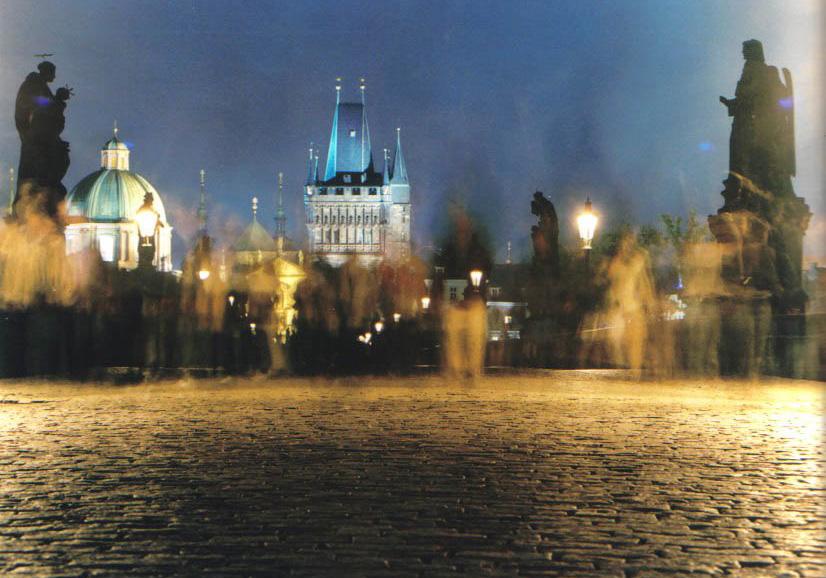
by Tiffany Walther
O’ poetry, how I hated thee.
You haunted my dreams and angered me.
O’ you caused me pain and suffering
But now, now I see.
O’ poetry, you’ve opened my eyes and shown me how
To let my feelings flow and grow.
O’ poetry, now I see that those dreams wanted to fly
Those dreams wanted to me to know that the anger that I had wasn’t real.
O’ poetry, how I now enjoy thee.
You bring me joy and happiness
O’ you show me how those others feel.
O’ poetry, now I thank thee
For bringing me that suffering.
by Margaret Osgood Opatz
That summer, rain drizzled almost every day like mist from a waterfall leaving me anxious to get out of the house whenever the sun poked its head out of the clouds. Sitting at the kitchen table, all alone, I began to wonder what the day would bring. As the sun came through the cracks in the curtains Kathy ran into the kitchen with her hand clenched tight.
When I started to ask her what was in her hand, she shook her head as if to say, “No! Don’t ask!” Mom was at the sink doing some dishes with her back towards us, so she didn’t see Kathy come in. Kathy motioned for me to step a little closer like a “designer” handbag salesman in the alley ways of San Francisco. She even looked like one wearing her purple wind suit that Grandma gave her every Christmas.
“Hmmm, what does she have?” I thought as we inched closer to each other. Slowly she opened her hand revealing a book of matches.
“Matches?” I whispered as my brow furrowed. “What are you going to do with those?” I mouthed with my back towards Mom so she wouldn’t hear me. Kathy shrugged as if to say, “I don’t know” while motioning towards the door.
In unison we called, “Mom, we’re going outside to play!” Running out the back door we circled around the house stopping only once we reached the front steps. On the steps, we picked up small sticks, struck the matches, lit the sticks, and raised our burning sticks like the Statue of Liberty. Freedom was ours.
From around the corner we saw a flash. We were busted. Dad yelled out, “What the heck are you doing?” He wanted no answer.
“Where did he come from?” I wondered.
“Do you know how flammable those wind suits are?”
“Flammable?” I questioned looking like a deer in headlights.
“You could have lit yourselves on fire! You could have killed yourselves!”
Dad continued to scold. Finally he stopped. Just long enough for us to say that we would never play with matches again. “Go to your bedrooms, now,” he warned.
We opened the front door, walked through the door, and up the stairs. “That was fun while it lasted,” Kathy whispered halfway up the stairs. “Right,” I said to her, while inside I was really thinking, “That was stupid, I hope Dad isn’t too mad.” That day I realized how important it was for me to make choices that make Dad proud of me, not choices that make Dad want to kill me.
The river was calm
by Kadelyn Egan
The water, now streaming red
Many were killed
One lay with eyes wide open
The water, now streaming red
The sky is gloomy and is ready to weep
One lay with eyes wide open
What was it for?
The sky is gloomy and is ready to weep
Many were killed
What was it for?
The river was calm
The river was calm
The water, now streaming red
Many were killed
One lay with eyes wide open
The sky is gloomy and is ready to weep
What was it for?
By MaryBeth Jarvis Clark
Dragging herself heavy home from work, she put down the anvil, left it on the sidewalk, kept on schlepping. Three steps later, she tossed the bowling ball, let it run down the street, knocking into whatever it me. At the end of the block, she took off the manacles and left them hanging from a stop sign. Then she shed the suit jacket and the computer bag, handed them to a raggedy newspaper reporter on his way out of the bar. She walked clean out of her high-heeled shoes, unzipped her pencil skirt and let it fall. Unburdened now, she saw the street ahead of her turn into a grassy field. The late afternoon sun warmed her bare shoulders. The earth breathed beneath her feet, giving her a little low-five with every step. She started dancing, spinning, singing. Singing to the trees, dancing with the breeze, ducking under backyard clotheslines, limbo style, all the way to her own backdoor. Up the steps, into the house, where the mirror looked back at her and said, “Aw, go on, baby,” and the dishes in the sink said, “Let me get a little bit of that,” and the neighbors stopped by to congratulate her on her triumphant return, hoisting her onto their shoulders and carrying her around the block and into the circle for night games. Kick-the-can and hide-and-seek and sweet iced tea with homegrown mint. So cool, so sweet. Dreamy, floaty, ready for sleep.
by Takara Truong
I thought you were with me I thought you had stayed I thought you’d remind me of the assignments due today I though we were a team both combined you and I To battle against school assignments and against the due time I thought I could trust you but that was a Lie This is the end.
Sticky Note, Good Bye.
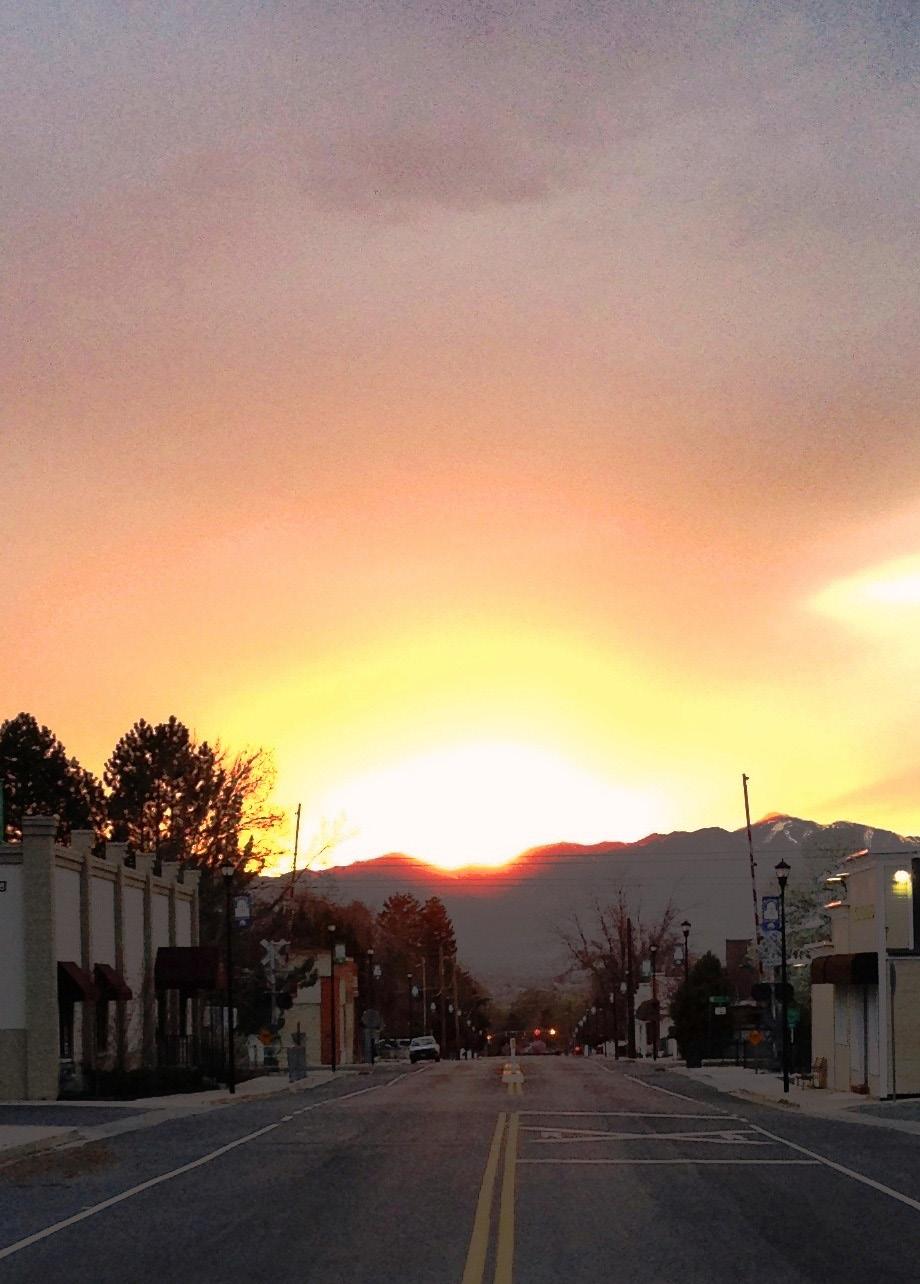
A
photo by Ted Lazenby
by Amy Childress
Before I wake snow nestles on car windows still and silent in its whiteness snow water drips in front of the window cat eyes inside, watch I look out at the front yard and remember leaves red and crimson now covered and lost.
by Amy Childress
Curled up in a sand soaked blanket, still the wind breathes. Stretching foam grasps at bare ankles across a million grains. the sun eclipsed behind a charcoal blanket the seagulls; too stupid to leave douse webbed toes in a clear haven. Water expands reflections till they wrap themselves around rocks.
I am trapped clutched tightly between sand paper and crunched cotton listening from the inside. But my toes are not deceived, they know how close the wind reaches.
by Paula Colborn
Greta stared into her drink then swirled the reddish liquor around counterclockwise. This evening was a bust; nothing was happening. She would not be able to get the provisions she promised her uncle she would find. How disappointing, that she would return home empty- handed yet again. She was dressed nicely in a dark blue evening gown, with her rich, full hair cascading over her shoulders and down her back. Attracting the right attention shouldn’t be difficult but nothing happened.
The next night she returned to the Oasis Club. No luck. She tried again the following night. No luck. Then she tried the following Thursday. That was when things got interesting.
“. . . and thass when I said (hic) buddy you wouldn’t know dicloro if it bit you harharhar” the slurred voice floated across to her. She hoped that wasn’t the person she was supposed to contact. What an idiot, drunk and obnoxious, spouting his business when his business was supposed to be less than something you would advertise. Not me, she thought pleadingly as his eyes roved over the room, don’t be looking for me. Damn, he saw her and his face lit up. Yep, he came ambling over, probably thinking he was a hot item, slopping his drink as he came. “Hey, doll,” he said amiably, “how would you like to dance?”
“Only with someone who can stay on their feet,” Greta said icily. He looked puzzled, “I can’t hear you, doll,” he slurred. She picked up her drink and moved behind the big leafy plant in the corner where there was a cozy table made up for two. Predictably, he followed her. She sat down, he sat down. At least she had him quieted down for the moment. He continued to make what he thought were gallant statements about her beauty while she listened with growing anxiety. “I bet I can impress you,” he continued. Here it comes. “How so?” she said.
“I know where I can get some penicillin. Thassa big deal, not just anyone...”
“Keep your voice down,” she said in alarm. Was this joker kidding? The stuff was like gold. The more she hushed him the louder he got. She leaned in, motioning for him to do the same.
He seemed happy that she was responding to him. “Yeah, doll?” he said.
“You need to drink up quickly we have to go, okay? Hurry.” she urged. His face crinkled in worry like he finally realized she was here to meet him. “You know,” she said. He nodded and swiftly downed his double bourbon then wobbled. Going, going, gone. He plowed face first onto the cozy table. She looked around for his friend. Yes, there he was, in the gray dinner jacket. He had blonde hair, warm blue eyes, and a nice smile. And he was sober. She waved him over impatiently. As soon as he was in earshot she scolded him. “I don’t know who you guys are or what your plan is but your friend here is offering medicine at the top of his lungs,” she said, “You are lucky I am not the type to call the Security Force.”
“Look, lady, I am sorry he bothered you. Please don’t do that.” She lowered her voice, “I was looking for you.”
He stood very still. “You?”
Greta nodded, “We can’t very easily talk here though, with the scene your friend made.” “No.” he lowered his voice, “I warned him to stop drinking, this rendezvous is important.
Can you meet me in the alley? I am going to dump Viktor in the back of the lounge area. I have seen drunks sleeping there before.”
He looked so hopeful and Greta knew this was important. Did she dare, or was the whole thing too risky now? If they were caught the penalties were dire. Then she remembered why she even did something this dangerous.
Had she loved Jason? How do you begin to go about explaining something so heartbreakingly matchless as that? It is impossible to sum up in mere words, to string together those thoughts. Thoughts that tell how they used to stroll to see the city sights, take long walks, go out for dinner, and rest in each other’s
arms until they had filled up each other’s world. When the sickness took him a part of her was cruelly torn out. That wound hurt still. How could a piece of you be torn and it not hurt? Is that love? It all happened for no reason. A simple regimen of the medicine that was sitting in abundance in government facilities could have prevented his death. But no. It was all hoarded for the elite, the ones in the dictator’s inner circle. Just in case one of them might get sick. Not so long ago life had been better, more reasonable. Because of the chaos following the earthquake, everyone welcomed a heavier ruling hand. Democracy had always been the little country’s way and in a moment’s unheeding panic an agreement was forged just until order was restored. But then democracy was gone.
That was when the bad times began, even before freedom melted away. That was when the artificial shortages caused sickness and want. Now to protest meant being thrown into jail without a trial and black marketing could mean death.
She had to stop thinking about it because the rage, the hurt, would come back. Now it was the regime’s turn to hurt.
Greta watched while the man hauled Viktor to a quieter spot in the lounge then she quickly pulled the phone from her purse and texted I found the contacts but they are trouble. An apprehensive reply came back. What should she do now? But the man in the gray jacket was subtly waving her to the rear exit.
She stepped nervously into the alley, her heart pounding. “I have people who are ready to go to Stennerville,” he said, “We just need the shipment.”
Stennerville was fifty miles away and was in desperate need of drugs of every kind. Getting the supplies to them was her responsibility. But could she trust this fellow to not betray the network that had been so painstakingly set up? The cost was great either way. “Look...” she began. “Kurt,” he offered quickly. “Okay, Kurt, I will take you to my headquarters but believe me, if you betray me I will find you.”
“I understand. You don’t have to threaten me. You have orders and I am wearing this ridiculous gray dinner jacket as ordered so you would know me.”
“I was told you were competent. Then your friend got drunk and nearly blew the whole thing. You better get rid of him if you want to be taken seriously.”
“Once again, I understand your concern. Let’s get this done.”
“Well, I guess we are okay then. This way.”
For just a moment his eyes flickered a look of what, satisfaction? Was she being fooled? She felt the tug, the intuition not to trust him with knowledge of their hiding place.
by Alexis Isle
The clock ticks, it drives me nuts. It’s like it never shuts up. How do they expect me to do this test with all that noise?
The questions glares at me like its mocking me as it asks: Who are you? Who am I?
I am the girl who ran away. Tick tock
The girl who couldn’t look at the face of danger any more Tick tock
The girl that was afraid Tick tock
The girl that couldn’t keep up
Tick
The girl who lost track of time
Tock
Crash
Shatter
Silence
In a place that was just as afraid of time
As I was of being powerless
Of being out of control
Of being unable to know where life would take me
I was the girl who ran away when I found out the person I thought would keep me in line.
The person I thought cared
Decided that it was time for me to run out of time
In a place that was just as scared of a ticking clock as I was annoyed by it
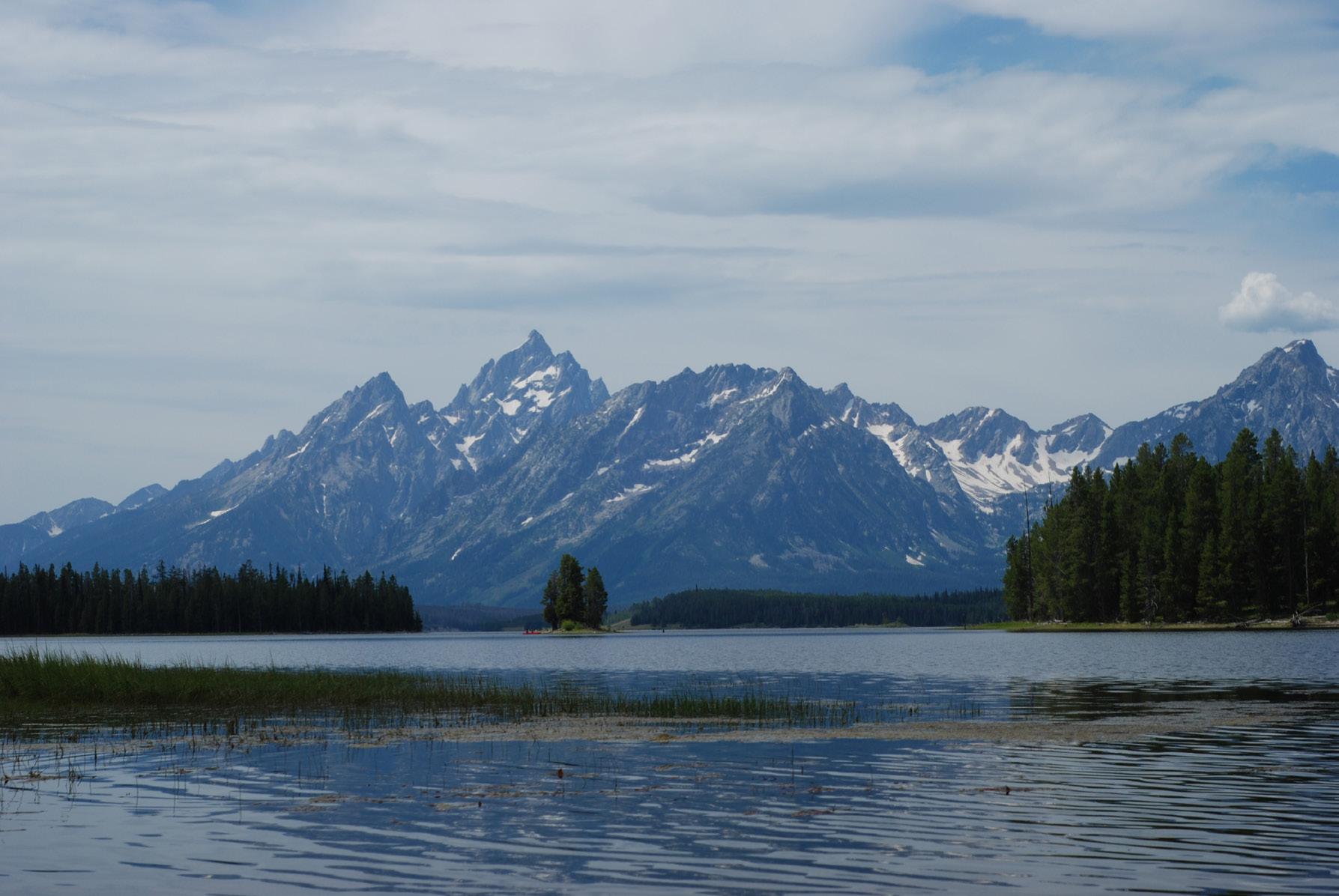

will all be perfectly normal and commonplace. You’re going to find your way to a new happiness — and having the bed all to yourself will be pure bliss.
Love,
by Alexis Isle
Learning is strange
You’re told different things
You’re pulled in different way
You listen to what others tell you and you don’t question often
But eventually you learn so much you find your favorite thing to learn about
Also known as our favorite subject
Science
Math
History
English
There is always something we learn about That strikes a chord with us
That speaks to us
That in the strangest way makes us realize who we are It either whispers to you saying this is your path
Or
Shouts at you
Yelling
The direction you should go Either way you find YOU
So what Subject are you?
by Natalie Moldover
The cars and busses fly by
On Washington Boulevard
We wait for the JOS #91
Jamaica Omnibus Service
I love saying that
Duhaney Park to Parade – the City Centre
Ma, David and I
I get to hold my fare ready to pay the conductor
I hold on tight to my ticket
My starched uniform and tight braids make me squirm
Will my feet ever touch the floor of this bus?
The cool morning air flows through open windows
But it won’t stay cool
The Kingston heat will press the cool into tomorrow
My starched uniform will soften and pleats crush
My feet and shoes will be dusty before long
Tight braids will somehow loosen
Play!
Play hard!
But here we are – Parade!
I never figured out why we call this place Parade
I think of those scary masked people in the Jonkunnu Parades
“Come on Natalie”
But I can’t
I stand and stare around Parade
Ward Theatre – bright white and regal
Coke Church – red bricked and welcoming
All the pretty plants and flowers at Parade “Come on”
A four year old falls in love with really old places and buildings
by Kadelyn Egan
When I smell pasta, I smell the eggy aroma that belongs to the noodles and the buttery, yet creamy smell of the sauce that accompanies it.
When I see pasta I recall the Italian name it was given to describe its shape. When I touch pasta, I feel the firm dough beneath my fingers as I roll and press the dough into noodles.
When I taste pasta, I taste the perfect spongy noodle as it slips into my mouth. I taste the ricotta cheese and the creamy white sauce that contributes to it.
When I hear pasta, I hear the boiling of water as it holds the pasta and the slurping of noodles with the accompanying sound of mmm...
And I set you sky free
Knowing fully well
You don’t belong to me
by Helen Gwen
Playing poker I placed my bet on love
Always willing to draw more energy
For the next round
As much as we hoped this was it we were only preparing For the next round
The next round of “I love you”
For the response of “I doubt you”
And the feeling of “I need you”
Ignoring the thought of “I’m better off without you”
I set my cards on the table, faces up
Game Over
We only started this over For some closure
A familiar face turning Into a complete stranger...
It’s better this way
You go your way and I’ll go my way
This never would have worked
No matter what you said
Or what I say.
By MaryBeth Jarvis Clark
I have less laundry to wash now than when I lived in a young family of four, what with my husband’s armpits and my small children’s slobber and splashes and soil. Remember that time with Daddy was snuggling the baby and made her sweet, downy hair smell like the taco seasoning of his underarm?
There was a lot more washing in those days. Ten loads a week, maybe even twelve if someone had an accident. There was so much laundry that I could separate it into many discrete full loads: white towels, colored towels, jeans, blacks, blues and greens, reds and pinks, hand washables (thank the good lord for mesh bags and the “hand-wash” setting on my German-engineered, frontloading washer), sheets, comforters, whites that get washed in cold water on the “delicate” setting, whites that get washed in warm.
So much laundry. So many piles. The dirty piles, waiting to be segregated, then waiting to be washed. The clean piles, waiting to be folded. The frustration when clothing from the clean piles would not make it back into the closet or dresser drawer before ending up in the dirty pile again. Mt. Washmore — that was the dirty pile. Shel Silverstein could have written a poem about it. The exhaustion of actually getting all the clean clothes folded and hung and put away, appearing in my husband’s and children’s wardrobes as if by magic. “Why be the slightest bit careful with these clean clothes? They are obviously delivered by kind-hearted elves while I slumber.”
Laundry, how do I know thee? Let me count the hours, the days, the years. My father-in-law lived in a 70,000-square-foot mansion with a commercialgrade laundry room. The major domo knew that I, the bumpkin-in-law, would be thrilled by it. And I was. Keep your hundreds of thousands of dollars of wine chilling in that state-of-the-art cellar; let me spread-eagle on this massive folding counter and make pretend snow-angels on the cool, clean granite; let
me take in the scent of the warm fabric softener tumbling out of the three behemoth dryers.
When my husband and I built our own little palace, I included a dedicated laundry room. It was a closet compared to Dad-in-law’s set-up. Just one washer and dryer, but still at least eight feet of hanging rod for air-drying, above a folding counter that ran the length of the room, with cubbies below for sorted piles of dirty clothes, a broom closet, a sink, and cabinets for a host of laundry supplies. The children still young, the husband still pungent and careless, the laundry still occupied me excessively, but now I had a way to corral it, to stop it from running wild all over the house.
I lost that laundry room, and the house that contained it, when the husband decided he was finished with me. I took myself off to another house, bought another German-engineered, front-loading washer and dryer, and installed a countertop and a hanging rod above them in the back entryway. A smaller laundry kingdom, in a thoroughfare. Still workable, and still plenty of work to do. I got some small satisfaction a few months later when the ex-husband, stricken, apologized for never realizing what a big, hairy job the laundry was. He really had never given a thought to where those stacks of crisply folded T-shirts in his closet came from, or to who picked up the dirty socks he left balled up in front of the TV, under his desk, in the bathroom, and in the bedroom.
Unburdened of the manly laundry, I eventually took on the washing for another family of four. My friend Tree was dying of cancer. I put clean, freshsmelling sheets on the bed while she was out of the house getting chemo, and the next day I would return with crisply folded stacks of shirts and pants and pajamas, rolled up socks and underwear, and ironed handkerchiefs and napkins. Tree and her family swore I had sold my soul to the devil in exchange for my mad laundry-folding skills. I confessed that I owned a marvelous piece of hinged blue plastic, called a FlipFold. And then I confessed that I could fold that way free hand, too. They were delighted, and so grateful, every time. Laundry became my superpower.
Months after Tree’s death, after her clothes had been dispersed, our mutual friend Robbie told me that the pajamas she had taken from Tree’s closet still smelled like Tree, and that the scent brought her comfort. More months later, on a visit to my house while I was doing laundry one day, Robbie figured out that the comforting scent of Tree came from my laundry detergent and fabric softener.
And now, there is not as much laundry to do. Today I washed all my dirty clothes in a single load. Well, almost all — not towels and whites, because that would just be insanity. But everything else, all mixed together. Blacks, blues, reds, yoga pants, bras, socks, T-shirts, hand-washables, corduroys, a Christmasgreen tablecloth. All washed in warm, regardless of their care instructions. And I marveled at how far I’ve come in the life cycle of my laundry cycle.
by Alexis Isle
They say beauty is in the eyes of the beholder
That can’t be true
The blind cannot see yet
They can look right into your soul
The deaf cannot hear
Yet they can hear who you really are
They the many who stand united
Cannot walk
They the many who say the most are mute
Beauty is not in the eyes of the beholder
Rather beauty is in the soul
The ones that are often told that they are bad
That are hurt by words
That are told they are going no where
Are the ones who lead us into a brighter world?
Why hate them?
The perfectly unique
We are human
That’s all we are
We wonder around aimlessly
by Alexis Isle
Never really knowing where we are going
Making it up as we go along
Where are we supposed to be?
Who are we supposed to be?
All we do is wonder around in the dark abyss
Every step we take brings us closer to death
Are you ready?
Are you ready to take that step?
Make the move
Jump off the cliff
Ready to feel your hair flying in the wind
So fast it leaves a scratch
Will you be more then human and stop walking in the abyss
Will you be more then human and scream to all the walking that you are more than just another person in the mist
Will you be more than human and stop walking toward your death
Tell death it has to wait
Because you want your life to be great
Tell yourself that if you continue with this endless charade that you will soon walk off the edge
Will You be More Than Human?
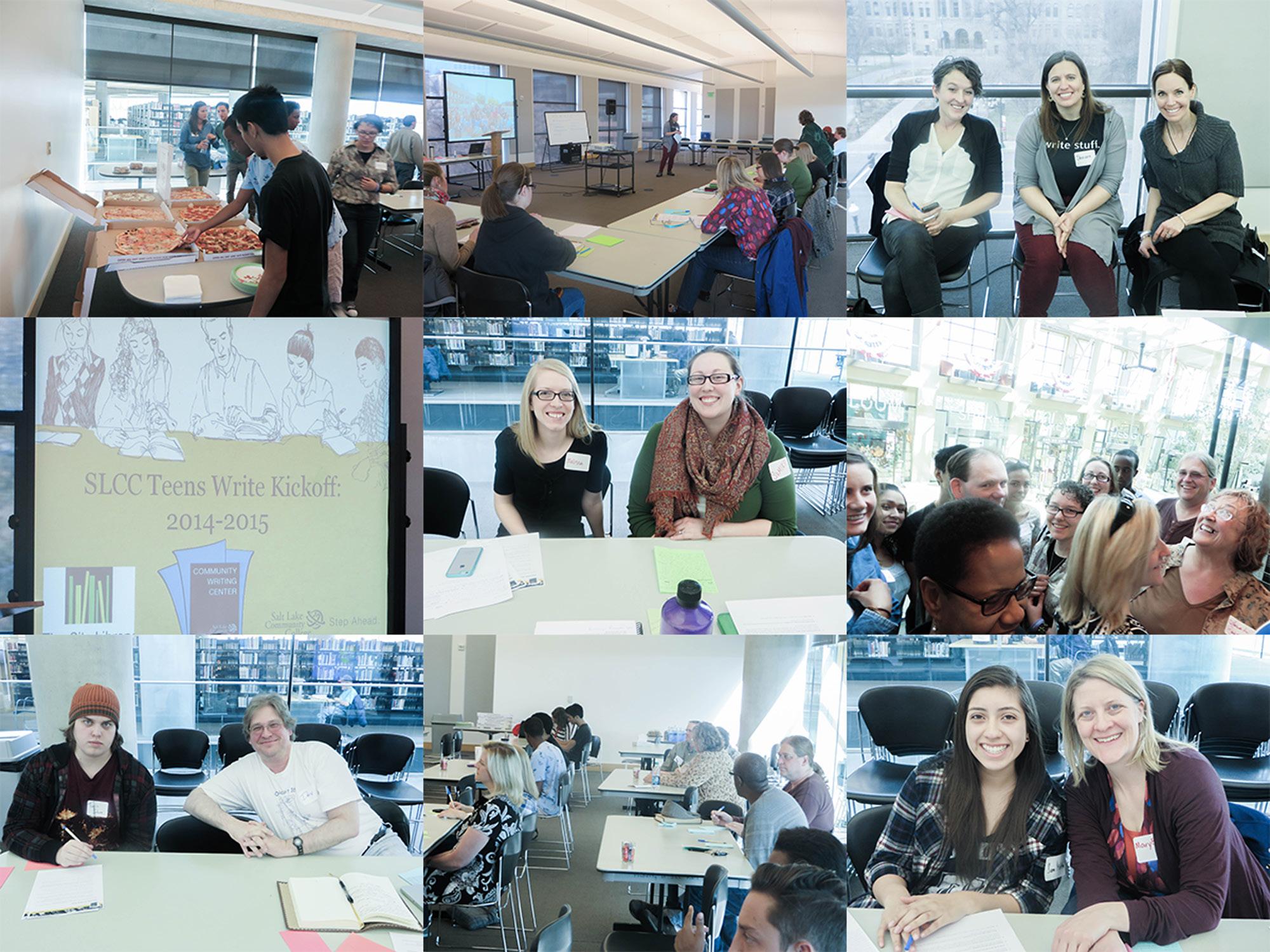
Salt Lake Teens Write culminates with a final publication, reading and a celebration!
